1st Amendment
The 1st Amendment is the most well known to Americans of all the amendments in the Bill of Rights. It contains some of the most familiar phrases in political discussion, such as freedom of religion, freedom of speech and freedom of the press. The 1st Amendment reads like this:
"Congress shall make no law respecting an establishment of religion, or prohibiting the free exercise thereof; or abridging the freedom of speech, or of the press; or the right of the people peaceably to assemble, and to petition the Government for a redress of grievances."
The 1st Amendment protects your right to believe and practice whatever religious principles you choose and your right to say what you believe, even if it is unpopular or against the will of elected officials.
It also protects your right to publish any information you want, join together with whomever you want and ask the government to correct its own errors.
What exactly does the 1st Amendment mean and how does it apply to people today? Does it have relevance to you today? It sure does. In fact, it affects just about everything you do.
The 1st Amendment has seven clauses. This page has a brief description of each clause with links to more detailed information about the history and purpose of each section.
Seven Sections of the 1st Amendment
Opening Phrase
The Opening Phrase of the 1st Amendment says "Congress shall make no law." This opening phrase immediately tells exactly who this amendment is aimed at... and that entity is Congress. So the 1st Amendment specifically prohibits Congress from making laws interfering with the rights mentioned in the amendment.
It does not however, prohibit the states from making such laws, nor does it prohibit individuals from restricting these rights to those who may be under their authority, such as a parent and child or an employer and an employee.
For one hundred years the 1st Amendment was understood to only apply to the federal government, but after the Civil War and the 14th Amendment was added to the Constitution, courts began to forbid the states to interfere with these rights as well due to an idea called "due process of law."
Learn more about the Opening Phrase of the 1st Amendment here.
Establishment Clause
The Establishment Clause is the part of the 1st Amendment that says Congress shall make no law "respecting an establishment of religion." This is a very crucial part of the American Constitution. It prohibits the government from establishing a state religion or denomination and from directing people in what they must believe.
Without the Establishment Clause,
the government could choose a state religion and force everyone to
participate in it. It could also punish anyone who didn't adhere to its
chosen faith.
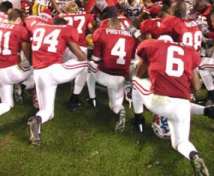
This clause has been the focus of much debate in the last half century. Some Americans believe that whenever the government is involved, absolutely all religious expression must be forbidden in order to comply with the Establishment Clause.
For example, they might say a public school football team should not pray at a football game because the school is a government funded school.
Other Americans believe the government must make certain allowances for religious expressions in public events and buildings because Americans are a very religious people. They belive a high school football team prayer or a government employee displaying a cross at work does not violate the Establishment Clause because it is simply a personal expression and not an expression endorsed by the state.
Indeed, in the minds of some, banning expressions of religious faith like this is a violation of another clause of the 1st Amendment - the Free Exercise Clause, because it seeks to control the religious expressions of citizens.
Learn more about the history and purpose of the Establishment Clause here.
Free Exercise Clause
The Free Exercise Clause is the part of the 1st Amendment that says Congress shall make no law respecting the establishment of religion or "the free exercise thereof." This phrase deals with the restriction on Congress to regulate anyone's religious practices.
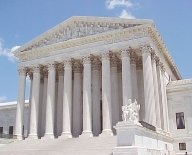
In general, Congress cannot tell people how they can or cannot express their religious beliefs. Such things as telling people when or how to pray, when they should go to church or to whom they should pray, are off limits to lawmakers.
In general, this is the case, but sometimes, minority religious groups may want to practice something that is not generally accepted or that the state has a very strong interest in regulating. For example, polygamy, ritual sacrifice and drug usage have been banned at times, because there is a compelling public interest in eliminating these behaviors.
In such cases, the Supreme Court has often ruled that the Free Exercise Clause does not apply. In other words, the Free Exercise Clause does not give free license to any behavior that someone says is their religious belief.
You can learn all about the Free Exercise Clause here.
The Freedom of Speech Clause
The Freedom of Speech Clause is the part of the 1st Amendment that says, "Congress shall make no law... abridging the freedom of speech."
British history contained a long string of suppression by those in authority of those with whom they disagreed. Many British subjects had been thrown in prison for voicing their religious and political beliefs. The Americans intended to prevent this from ever happening in their newly formed republic.
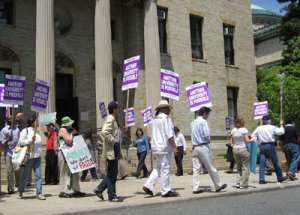
This is one of the protections in the Constitution that Americans hold most dear. They value it because it allows them to speak out against government policies they don't like. It also allows them to express the religious beliefs of their choosing.
Negatively speaking, many people abuse this right by slandering people they disagree with, or using ugly and offensive language, racial epithets or hateful language about people who are different than they are.
Generally, freedom of speech is considered to be not only the words people speak, but any type of expression that is used to convey an idea. Such things as picketing, wearing symbols or burning the flag are considered protected forms of speech because they are expressing the ideas of the people participating in them.
You can learn more about the Freedom of Speech Clause by clicking here.
Freedom of the Press Clause
The Freedom of the Press Clause states that "Congress shall make no law... abridging the freedom... of the press."
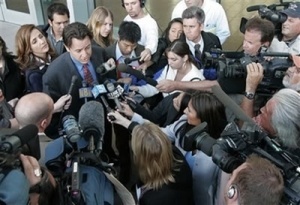
This was a very important principle to the Founding Fathers of America because of the importance the press played during the Revolutionary War.
Without the press, the Founding Fathers would have found it very difficult to distribute their views to people in other parts of the country. The press turned out to be a very important instigation in getting Americans to consolidate their views against England and in spreading the concepts that would justify a break with England.
English history contained no freedoms for the press whatsoever. All publications were subject to governmental review before publication. Criticisms of the government were strictly prosecuted as sedition. All Americans wanted the right to criticize their government freely as well as to discuss other topics whenever they chose.
If you would like to learn more about the Freedom of the Press Clause, please click here.
Freedom of Assembly Clause
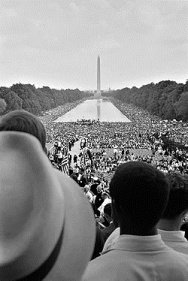
The Freedom of Assembly Clause is the part of the First Amendment that
reads like this: "Congress shall make no law... abridging... the right of the people
peaceably to assemble..." This clause is also sometimes
referred to as the Freedom of Association Clause. This clause protects
the right to assemble in peace to all Americans.
The Freedom of Assembly was very important to early Americans because without the right to assemble, they could not coordinate their opposition to the British government. The Freedom of Assembly was recognized to be of utmost importance if the Americans were to be successful in establishing a government of the people.
The Freedom of Assembly Clause has been relied upon by many groups in American history, such as civil rights groups, women's suffrage groups and labor unions. Government officials in each case tried to restrict the speech of these groups and prevent them from meeting, organizing and getting their message out. The Freedom of Assembly proved to be an important factor that allowed these groups to prosper and see their visions fulfilled.
You can learn more about the history and importance of the Freedom of Assembly Clause here.
Freedom of Petition Clause
The Freedom of Petition Clause of the 1st Amendment reads like this:
"Congress shall make no law... abridging the freedom... of the people... to petition the Government for a redress of grievances."
The freedom to petition the government was very important to early Americans because of their experience with trying to get King George III and Parliament to respond to their grievances. The colonists were so angry about the Monarchy's refusal to acknowledge their grievances that they mentioned this fact in the Declaration of Independence.
The freedom to petition the government for redress of grievances has come to include the right to do such things as picketing, protesting, conducting peaceful sitins or boycotts and addressing government officials through any media available.
You can read more about the history and meaning of the Freedom of Petition Clause here.
Amendments:
Preamble to the Bill of Rights
Learn about the 1st Amendment here.
Learn about the 2nd Amendment here.
Learn about the 3rd Amendment here.
Learn about the 4th Amendment here.
Learn about the 5th Amendment here.
Learn about the 6th Amendment here.
Learn about the 7th Amendment here.
Learn about the 8th Amendment here.
Learn about the 9th Amendment here.
Learn about the 10th Amendment here.
Learn more about the Bill of Rights with the following articles:
- Main Bill of Rights page.
- For a brief synopsis of the First Ten Amendments click here.
- Learn about the Purpose of the Bill of Rights here.
- Read about the History of the Bill of Rights here.
- Look at the Bill of Rights in Pictures here.
Last updated 8/7/12
Return to top of 1st Amendment
Revolutionary War and Beyond Home
Like This Page?
© 2008 - 2022 Revolutionary-War-and-Beyond.com Dan & Jax Bubis

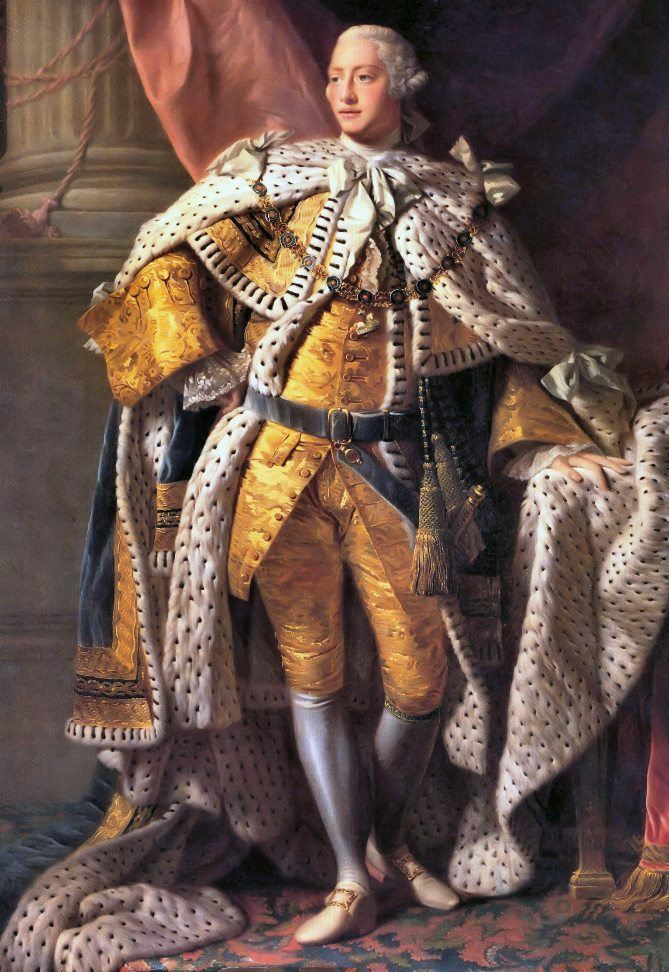









Facebook Comments